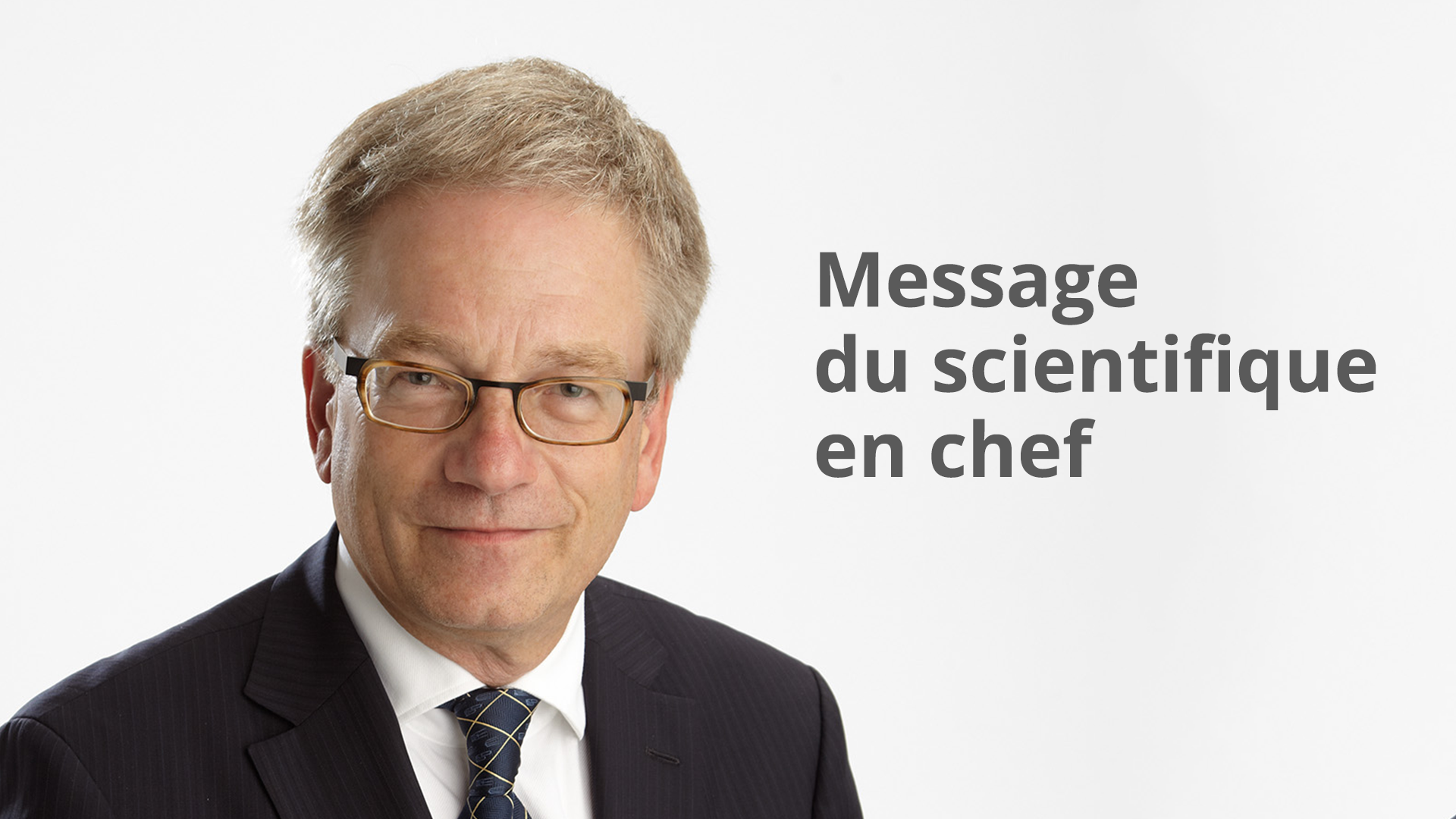
The year 2021 wasn’t the easiest. In 2022, we are all hoping to get back to many of our activities—scientific, social and cultural and with friends and family. It seems to me that it will do us some good to go over our latest research results in person, around the coffee machine or at lunch in the cafeteria. We mustn’t throw in the towel: we will get there soon enough, though we are becoming increasingly aware of the facts that worldwide vaccination is urgent and we must learn to live with the virus and its variants!
The past 12 months posed challenge after challenge in terms of teaching and distance learning, telework and access to laboratories, research fields and research facilities of all types, as well as in terms of significant medium- and long-term impacts, not to mention the well-being and mental health of each one of us. For the teams at the Fonds de recherche du Québec (FRQ), it will be important to consider those new realities in all our programs, and a number of initiatives are already in motion. The same applies to my role as an advisor to the government so as not to minimize the impacts of COVID-19 on society as a whole.
Still, since the start of the pandemic, science and research are more visible and present than ever in the media and public sphere. The rapid development of mRNA vaccines constitutes a spectacular tour de force that makes the significance of long-term investments in basic research clearer than ever for our governments. Today, we need more virologists. Tomorrow, we may need more geologists, entomologists and perhaps even experts in religious sciences. It is essential to support all research sectors and fields to meet the major societal changes of today and tomorrow, including climate and demographic change. If you would like to know more, I sat down for a year-end interview with Radio-Canada you can read here (in French).
I would like to thank those of you who have been present in the public space. Appearances like yours are not always easy, but they remain essential even though your work is not always duly recognized by our organizations, which are forced to manage disinformation and personal attacks. In collaboration with partners, we want to better recognize your activities and expertise in science and society and support training and research in the area.
2022 priorities
As far as priorities for 2022, I would mention the new Stratégie québécoise de la recherche et de l’innovation (SQRI) research and innovation strategy and the FRQ’s new strategic plans. I also continue to be very involved in the major initiative on the upcoming innovation areas and implementation of the recommendations of the Rapport sur l’université québécoise du futur.
Under the leadership of our Minister of Economy and Innovation and in partnership with the Conseil de l’innovation and Québec’s Chief Innovation Officer, the FRQ took part in a number of consultations related to the development of the next SQRI. Many of you also contributed to the effort, and I thank you. Among the highlights of the consultations was the Grand Rendez-vous de l’innovation Québécoise on November 18 and 19. On the second day of the event, which featured nine forums, the FRQ organized a discussion on academic research. I even got my 180 seconds of fame when I provided an overview of our key recommendations to Minister Fitzgibbon to close the event. The most important outcomes of the talks include the clear need for more investments in basic research in all disciplines, support for new researcher training through flexible programs that enable all our communities to access higher education, open science, adherence to the principles of equity, diversity and inclusion (EDI) and key societal issues as they relate to the United Nations Sustainable Development Goals (SDGs). Citizen engagement through participatory research programs and the principles of reverse innovation are essential points that were also raised. We are now in the final stages of drafting the SQRI, which Minister Fitzgibbon is expected to release in spring.
At the same time, we are finalizing the three strategic plans of the FRQ, which, of course, are informed by the vast consultations on the SQRI and expanded by our own discussions. We also consulted members of civil society (read the report, in French) and all the ministers, and a number of meetings of the boards of directors were dedicated to strategic planning. All three plans should be adopted within the next few weeks. In broad terms, the priorities will focus on: a) support for basic research; b) new researcher training based on the recommendations of the Rapport sur l’université québécoise du futur; c) EDI principles; d) open science; and e) major societal issues including the SDGs. The science and society component will be further developed with the expansion of the Audace, Engagement and Dialogue programs. The pandemic clearly demonstrated the relevance of strengthening the ties between science, research and our fellow citizens across Québec, and we are working on an important undertaking to establish mechanisms to facilitate links between elected officials and civil servants to foster informed decision making driven by conclusive data and research.
Finally, as the new president of the International Network for Government Science Advice (membership is free and there are over 5,000 members in 130 countries, so join us!) and with the support of the small team and board of directors, I will focus on the creation of an international network of French-speaking scientific advisors and the particularities of science advice at different levels of government, since the needs are different but all too often ignored. Get in touch with me if you are interested in taking part.
I hope to see you all soon. I miss 3D!
Best,
Rémi Quirion, Chief Scientist of Québec
